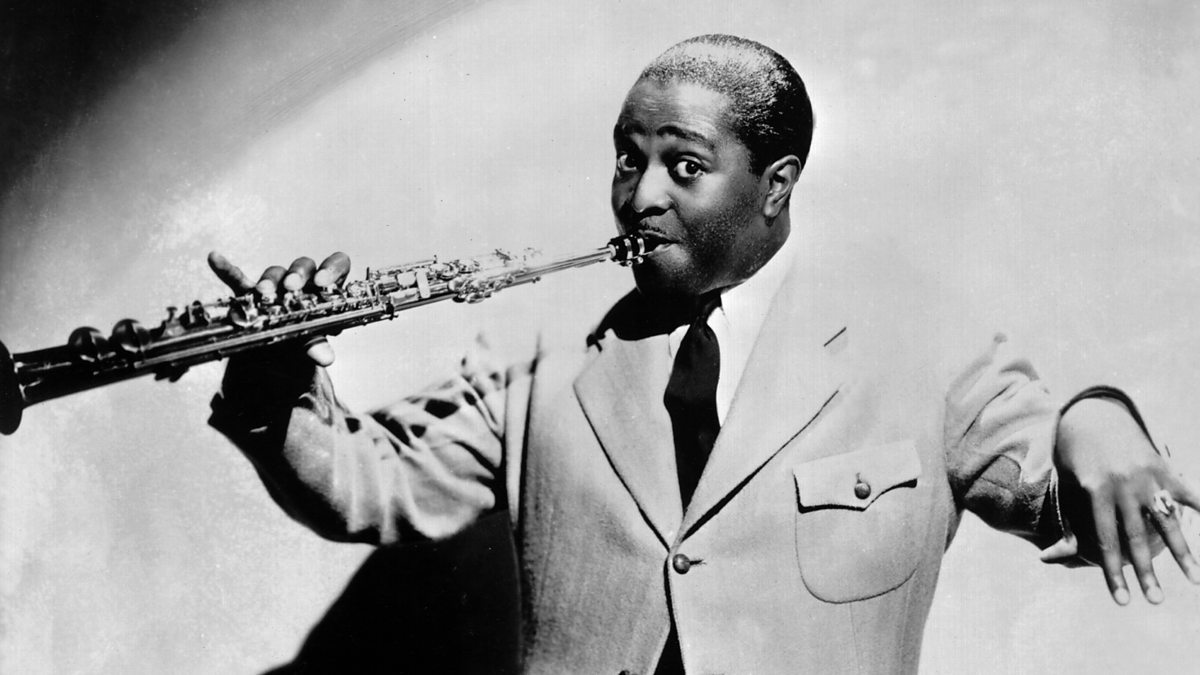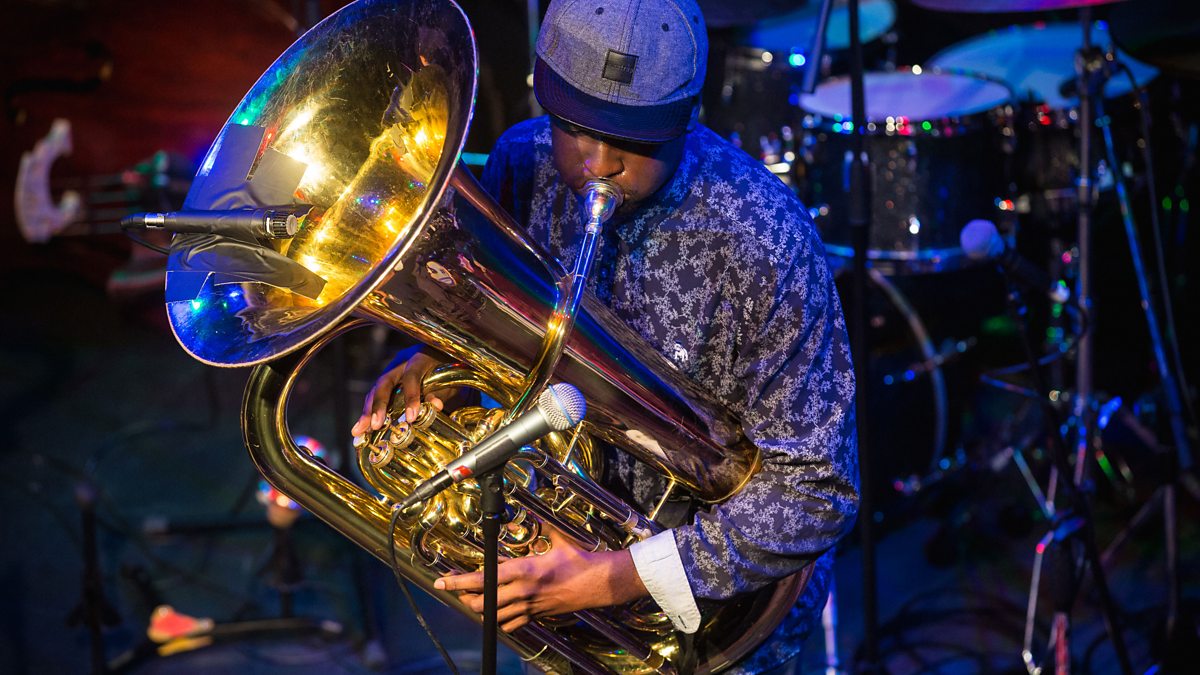Sat 13 Feb 4 pm - Jazz Record Requests
Alyn Shipton with listeners' requests for all kinds of jazz today, with a recording of Michael Garrick performing jazz on the harpsichord
5 pm Jazz Line-Up
Julian Joseph presents a performance by Trio HSK recorded last June at the Glasgow Jazz Festival. And Alyn Shipton reports from the European Jazz Network Conference in Budapest
'Round Midnight - Geoffrey Smith's Jazz
On the eve of Valentine's Day, Geoffrey Smith invites lovers and others to party with the joyful jump band of Arkansas-born saxophonist and singer Louis Jordan (1908-75). Immortalised in the 1990 West End hit Five Guys Named Moe, Jordan was the king of American jive.
Pedant's corner, anyone???
Mon 15 Feb - 11 pm - Jazz on 3
Jez Nelson introduces a performance by tuba player Theon Cross and his trio, recorded in November at the London Jazz Festival
Alyn Shipton with listeners' requests for all kinds of jazz today, with a recording of Michael Garrick performing jazz on the harpsichord
5 pm Jazz Line-Up
Julian Joseph presents a performance by Trio HSK recorded last June at the Glasgow Jazz Festival. And Alyn Shipton reports from the European Jazz Network Conference in Budapest
'Round Midnight - Geoffrey Smith's Jazz
On the eve of Valentine's Day, Geoffrey Smith invites lovers and others to party with the joyful jump band of Arkansas-born saxophonist and singer Louis Jordan (1908-75). Immortalised in the 1990 West End hit Five Guys Named Moe, Jordan was the king of American jive.
Pedant's corner, anyone???
Mon 15 Feb - 11 pm - Jazz on 3
Jez Nelson introduces a performance by tuba player Theon Cross and his trio, recorded in November at the London Jazz Festival




Comment